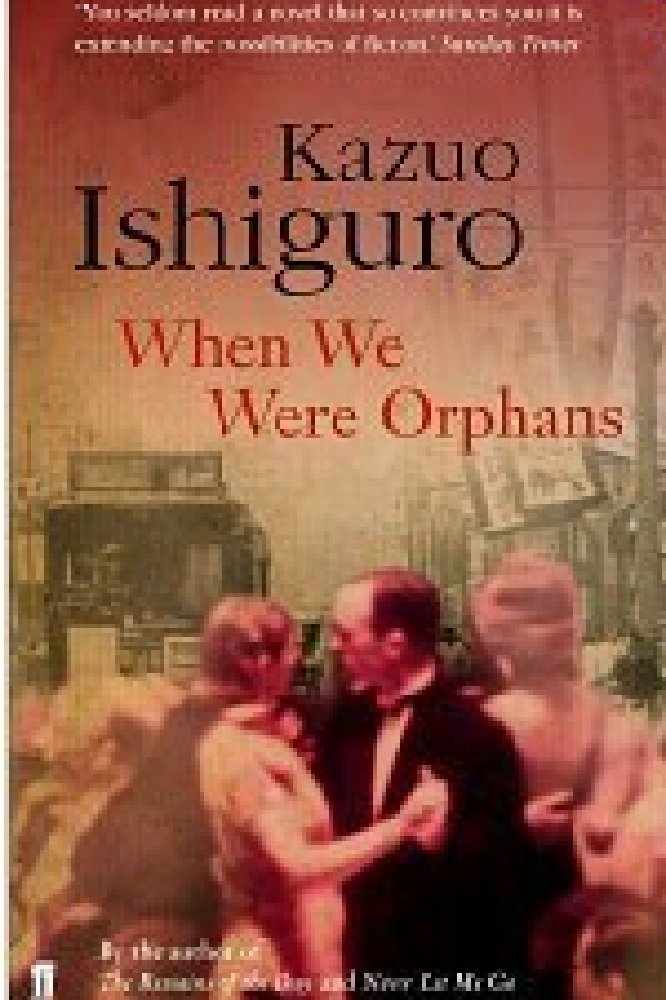
When We Were Orphans
Set just before the Second World War, Christopher Banks is a young detective in England growing ever more famous with each case that he solves, but he seems to be more preoccupied with his memories. As a boy in Shanghai, his parents both mysteriously disappeared, and it is this unresolved case that haunts his present. A novel dealing with the power of memory, both to enlighten and to mystify, When We Were Orphans follows Christopher’s attempts to solve the mystery of his parents – but will he ever be reunited with them?
Despite being shortlisted for the Man Booker Prize in 2000, I was a little wary when I decided to read When We Were Orphans. I had watched Never Let Me Go, based on another of Ishiguro’s novels, and found the film strange and hard to fully understand. But I am so glad I decided to read When We Were Orphans, and if this novel is considered to be one of his worst, Ishiguro’s other novels must be outstanding.
What makes Ishiguro distinctive is his style of narration, and although the formal language and sentence structures take a few chapters to adjust to, Christopher Banks’s voice becomes very engaging as he retraces his memories. Whether he is recounting an encounter with Sarah Hemmings, another main character in the novel, or fragments from his childhood in Shanghai, with every memory we are drawn deeper into both the mystery of his parents’ disappearance and the novel itself. Ishiguro manages to capture both the power of retrospection and a child’s outlook on the complex world of Shanghai in the early twentieth century, which makes the ending all the more effective.
Although you could argue that not much actually happens for the first half of the book, when the main event occurs, it does so in a climactic way. Ishiguro questions memory itself, and whether looking into the past can damage and even inhibit the present, in a way that creates a lot of sympathy for Christopher Banks at the end. And if you need another incentive to go out and read this novel, it was so good that I read it in two days flat because I couldn’t put it down (unfortunately for me when I should have been doing work for university…). When We Were Orphans is simply brilliant.
By Julia Molloy
tagged in julia molloy
